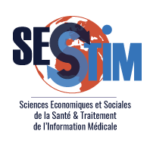Building on colonial policies, public health international policies were historically founded on a threefold approach involving health, economics and socio-politics.
In the framework of the first one, a global epidemiological omnipotent and omniscient approach has been prevailing, since the 1950s, without any local roots within societies and individuals, their lifestyles and belief systems. Its negative, both immediate and long-term effects are to be measured as much on health, at psychological and epidemiological levels, as at social and political levels in so many failing states.
Regarding the second, human and animal health is a market whose scope has steadily increased along with demography and public and private investment. Concerning this life and death matter, the “invisible hand of the market” comes up against individual and collective ethic, however plays with economic balance of power and survival strategies to maximize individual profits, whatever the implications may be for the community.
As for the latter, the ambivalence of a saving, missionary or humanitarian approach, has continued, over the same period, adapting to the different transformations of territorial control policies and their wealth, both natural and human. From European empires to independence, including the US-Soviet empires, power games evolve, into metastasis in many cases, but still look alike.
Considering the most current situations, such as the Cholera crisis in Haiti from 2010 to 2018, and previous historical situations, as in Cameroon in the 1950s, is it now possible to stand back and learn from our failures to build a new health, political and social paradigm?
The debates will be chaired by:
- Pr Renaud PIARROUX, Professor of Parasitology-Mycology, Head of the Parasitology-Mycology Department of La Pitié-Salpêtrière (Paris), infectious and tropical diseases specialist, is recognized worldwide for its expertise in cholera. He is a member of the Global Task Force on Cholera Control (WHO), and an adviser for UNICEF as well as for the Ministry of Health and Population (Haiti) on the management of the Cholera epidemic.
- Philip ALSTON, UN special rapporteur on Extreme Poverty and Human Rights since 2014, he teaches law at the Faculty of Law at New York University, where he co-directs the Human Rights and Global Justice Chair.
- Guillaume LACHENAL, Lecturer in History of Science at Paris-Diderot University. He studies the history and anthropology of biomedicine in Africa. He is the coordinator of the MEREAF project “Memories and Remains of Medical Research in Africa”, an anthropological and archaeological exploration of ruins and memories associated with the past in African medical institutions. Since 2015, he is the Chairman of the Scientific Committee of Social Sciences and Public Health of the National Agency for Research on AIDS and Viral Hepatitis (ANRS).
The workshop-debate is hosted by the Faculty of Medicine, Aix-Marseille University, as part of the partnership between the SESSTIM research unit and Prospective and Cooperation.
Download the programme (in French)
 And for those who are not in Marseilles, for the first time this year, we will experience a live broadcast of this workshop:
And for those who are not in Marseilles, for the first time this year, we will experience a live broadcast of this workshop:
>> join us streaming! (not available anymore)

